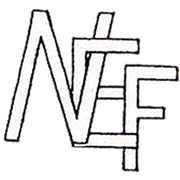When and why did your parents move to Australia?
The first time I heard about Australia, was in 1995 when my boyfriend went there to travel. I decided to go backpacking for a few months as well when I needed a break from my studies. My parents had given me a Lonely Planet and off I went.
My Dutch boyfriend went travelling in Australia in 1995, but I stayed behind. Yet, when I needed a break from my studies I decided to go backpacking as well. My parents had given me a Lonely Planet and off I went.
I have always been interested in living abroad and have always had international boyfriends. I met someone during my travels and we were together for eight years. When we broke up, I stayed in Australia.
What does Dutch identity and culture mean to you?
I am born in Thailand and was adopted by a Dutch couple when I was only a few months old. I grew up in the Netherlands, Hilversum and feel very Dutch. Because of my physical appearance, people often ask me about my background. I am a Dutch migrant here in Australia, but my physical appearance is not stereotypical Dutch (blond); it makes me different in two ways. In the Netherlands, it is only one layer of difference.
Overall, my personality is very Dutch too: I tend to be very direct. People don’t expect that from an Asian looking person, especially for women the norm is to be quiet and less outspoken. Everywhere you look in my house, you see Dutch items. Not in a patriotic manner, but just for decoration. I don’t feel home sick, but this is a nice way to create a Dutch home.
After living in Melbourne for two years, the need grew to meet other Dutch people. In the beginning I would say, there is no difference between Dutch and Australian people. But then I had all these questions about peoples’ behaviour: is this Australian culture or people’s character? Now I think there are many differences.
Pictures: Items in Siri’s house: miniature Dutch houses, miniature bicycles and map of the Netherlands. Siri: “In the Netherlands, I would never frame a map of the Netherlands and hang it on my wall”.
Can you tell us a bit about the Zing! choir?
I joined Zing one year ago, in 2017. I am completely new to singing; I have always loved it but would only sing in the shower. What I like about Zing! are the Dutch people, it’s an opportunity to belong to a group without the need to explain, which is fantastic.
The song texts teach me more about the Netherlands, it makes me think about my grandparents and what life looked like in the olden days of my grand parents.
At performances, everyone is the same. We are in the spotlights together.
I think singing techniques are very important and can be different from singing in English. Where you put the emphasis in the sentence is very important, I can completely change the feeling of a song. And emotions are important too.
When we are performing I think: ‘Hurray, we have an opportunity to show Dutchness again!’. I am proud of the culture and want to share it with others. Zing! provides the opportunity to be among other Dutch people and create your own small Dutch world.
I often wonder how non-Dutch speaking singers experience singing in Dutch and probably not understanding everything. I can imagine that creating this sense of belonging is harder for them and I feel compelled to explain and help them. On the other hand, I love singing along with Italian songs; I don’t know what the words mean but it just sounds pretty.
One of my favourite songs we sing with Zing is Pa, Doe Maar.





















